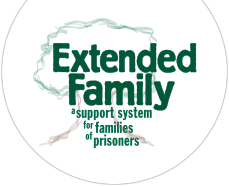The National Survey of Children’s Health (NSCH) conducted a survey in 2017, which are the latest figures available, and reported that, of 73.6 million total children ages 0-18 in the United States, 5,113,000 (7%) had a parent or guardian who was incarcerated, or 1 in 14. In that same report, of 1.2 million children in Alabama ages 0-18, 88,000 (8%) had a parent or guardian who was incarcerated, or 1 in 13. www.cdc.gov/nchs/about/major/slaits/nsch.htm.
“Parental Incarceration breaks up families – the building blocks of our communities and nation – and creates an unstable environment for kids that can have lasting effects on their development and well-being. Children with a parent who is incarcerated are typically younger and living in low-income families of color, usually with a young single mother who has limited education. Most are younger than 10.” Annie E. Casey Foundation, www.aecf.org/topics/parental-incarceration.
Children who experience the incarceration of a loved one have several specific needs. Some of those needs relate to their physical well-being, like food insecurity or homelessness. Other children experience being in trouble from taking out anger in damaging ways, falling behind academically because of not getting support at home, withdrawn emotionally and physically, and overly tired from untreated depression and anxiety, or from increased activity associated with incarceration, like visits to prisons. Sadly, many children feel isolated from peers and school activities, which leads to an increase in school absences, feeling ostracized by peers, and decreased opportunities to participate in extracurricular activities.
Children struggling with the incarceration of a loved one often lose the ability to just be children. Since 2003, Extended Family has been dedicated to helping children cope with the effects of losing someone they care about to incarceration. During the 2023-24 school year, Extended Family staff led more than 60 groups of children in kindergarten through 12th grades in schools and juvenile diversion programs. More than 625 students participated in our Extended Family for Kids and Extended Leadership Academy Programs, a 14% increase from the previous school year.
We show our value, “Children Matter,” by reaching as many children as possible with our programs with the goals of teaching them to express their feelings in ways that won’t get them into trouble, breaking the cycle of incarceration in families, and preventing young people from entering into the juvenile justice system. We strive to help children better manage the stress and other negative emotions connected with the incarceration of a loved one. Our programs are designed to help them be successful at home, at school, and in their communities.
We are honored and privileged to watch the children in our programs flourish. “Children Matter” is an important Extended Family value because it is never too early to empower a child to make healthy choices that lead to success, despite what choices their incarcerated loved ones have made. Mentally and emotionally strong children can help break the cycle of incarceration in their families and Extended Family programs provide them with the tools they need to choose that better path. For more information about Extended Family programs, visit our website at www.extendedfamilyhelp.org.

